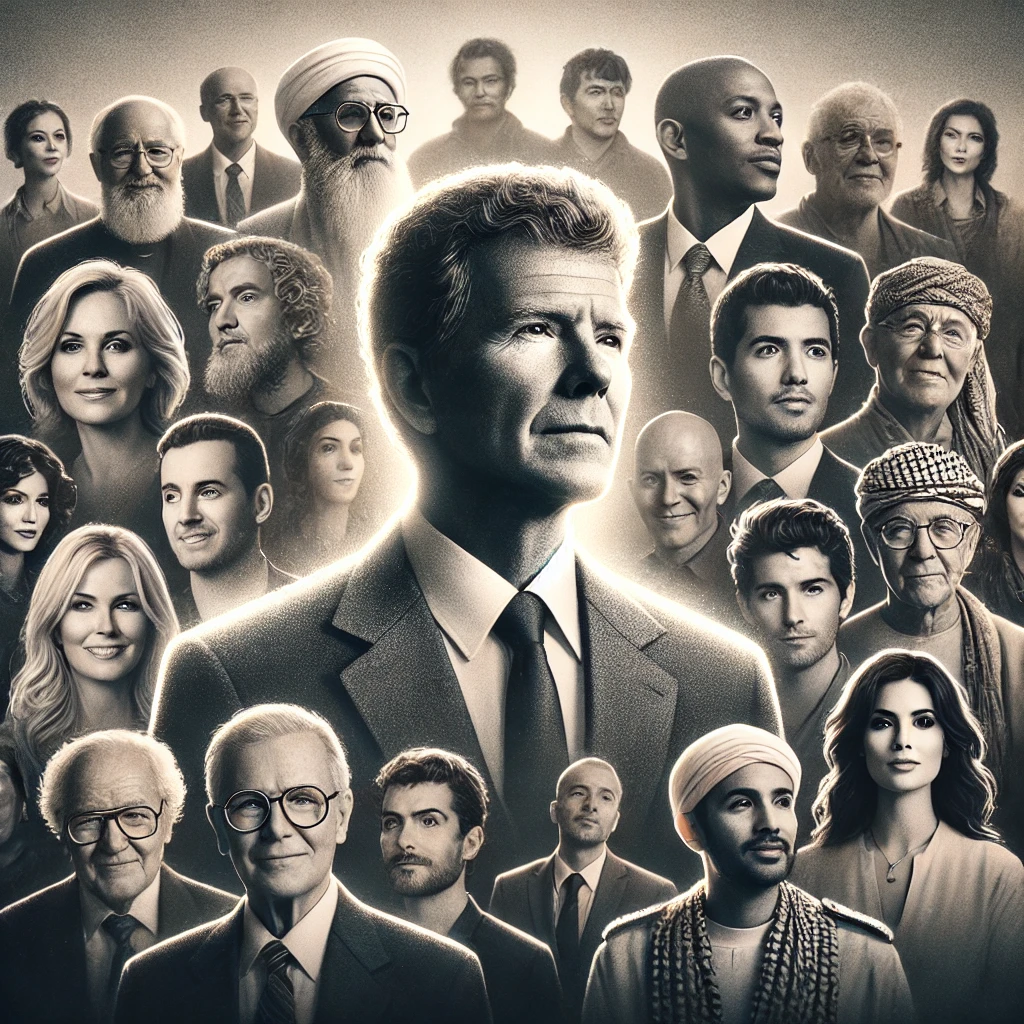Introduction
Celebrities have always held a special place in society, serving as both inspirations and cautionary tales. However, a subset of these famous individuals transcends the typical boundaries of fame to become venerated figures, revered not only for their talents but also for their influence, philanthropy, and the indelible impact they leave on the world. This article explores the concept of venerated celebrities, examining what elevates certain individuals to this esteemed status, the cultural and social implications of their veneration, and the legacy they leave behind.
What Does It Mean to Be a Venerated Celebrity?
The term venerated celebrity refers to a public figure who commands immense respect and admiration, often bordering on reverence. These individuals are not just popular; they are seen as icons who embody certain values, ideals, or virtues that resonate deeply with their audience. The veneration of celebrities is not a new phenomenon; throughout history, societies have always elevated certain individuals to near-mythical status. However, in the modern era, the rise of global media has amplified this process, allowing venerated celebrities to reach and influence audiences on an unprecedented scale.
The Qualities of Venerated Celebrities
One of the key qualities of a venerated celebrity is their ability to connect with people on a deep emotional level. Whether through their work, public persona, or personal life, these individuals often embody values that their audience aspires to. For example, celebrities like Nelson Mandela and Mother Teresa are venerated not just for their accomplishments but for their unwavering commitment to social justice and humanitarian causes. Similarly, entertainers like Oprah Winfrey and David Attenborough are revered for using their platforms to promote education, awareness, and positive change.
The Cultural Impact of Venerated Celebrities
The veneration of celebrities has significant cultural implications. These individuals often serve as role models, influencing the behavior, attitudes, and beliefs of their followers. For instance, the philanthropic efforts of venerated celebrities like Angelina Jolie and Leonardo DiCaprio have inspired countless others to engage in charitable work and environmental activism. Moreover, the global reach of these celebrities means that their influence extends beyond their immediate fan base, impacting societal norms and values on a broader scale.
The Role of Media in Elevating Celebrities to Veneration
Media plays a crucial role in the veneration of celebrities. Through films, television, music, and social media, celebrities are constantly in the public eye, allowing them to build and maintain their image. However, media can also be a double-edged sword. While it can elevate a celebrity to veneration, it can also lead to their downfall if their actions or behavior do not align with public expectations. The stories of celebrities who have fallen from grace serve as reminders of the precarious nature of fame and the high standards to which venerated figures are held.
Case Studies: Venerated Celebrities Through the Ages
To understand the phenomenon of venerated celebrities, it is helpful to look at specific examples from different eras. Princess Diana, for instance, remains one of the most venerated celebrities of the 20th century. Her compassion, grace, and dedication to humanitarian causes endeared her to millions, making her an enduring icon even decades after her untimely death. Similarly, Muhammad Ali is celebrated not just as a sports legend but as a symbol of courage, resilience, and social justice. His refusal to be drafted into the Vietnam War on the grounds of religious and ethical beliefs solidified his status as a venerated figure.
The Double-Edged Sword of Veneration
While veneration brings with it immense respect and admiration, it also comes with significant pressure. Venerated celebrities are often expected to live up to the ideals they represent, and any deviation from these expectations can lead to intense public scrutiny. The lives of Michael Jackson and Whitney Houston are examples of how the pressure of veneration can contribute to personal struggles and, ultimately, tragic outcomes. These cases highlight the need for a more compassionate understanding of the human side of venerated celebrities.
The Influence of Venerated Celebrities on Social Movements
Venerated celebrities often play a pivotal role in social movements, using their platforms to advocate for change. Figures like Martin Luther King Jr. and Malala Yousafzai are not just venerated for their individual achievements but for their contributions to broader causes such as civil rights and education for girls. Their influence extends far beyond their immediate sphere, inspiring others to take action and driving societal progress.
The Legacy of Venerated Celebrities
The legacy of venerated celebrities is one of the most enduring aspects of their veneration. Even after their death, these figures continue to inspire and influence new generations. The works of Mahatma Gandhi, for example, continue to inspire movements for peace and non-violence around the world. Similarly, the music of Bob Marley remains a powerful symbol of resistance and liberation. The ability of these celebrities to transcend time and continue to resonate with people long after their death is a testament to their lasting impact.
The Dark Side of Veneration: Celebrity Worship
While veneration can elevate celebrities to iconic status, it can also lead to unhealthy forms of celebrity worship. In some cases, the adulation of celebrities can become obsessive, leading to unrealistic expectations and a distorted view of reality. This phenomenon is particularly prevalent in the age of social media, where the lines between public and private life are increasingly blurred. The cases of celebrities who have struggled with mental health issues due to the pressures of veneration underscore the need for a more balanced and respectful approach to celebrity culture.
FAQs About Venerated Celebrities
Q: What defines a venerated celebrity?
A: A venerated celebrity is someone who commands immense respect and admiration, often seen as an icon who embodies values or ideals that resonate deeply with their audience.
Q: How do venerated celebrities influence society?
A: Venerated celebrities influence society by serving as role models, shaping public attitudes, and inspiring others to engage in social, cultural, or philanthropic activities.
Q: Can venerated celebrities fall from grace?
A:Yes, the pressure of veneration can lead to intense public scrutiny, and any deviation from expected behavior can result in a loss of public respect and admiration.
Conclusion
Venerated celebrities hold a unique position in society, straddling the line between human and icon. Their influence is vast, impacting everything from social movements to cultural norms. However, with this veneration comes significant responsibility and pressure. As we continue to celebrate and admire these individuals, it is important to remember their humanity and approach their veneration with a balanced perspective. The stories of venerated celebrities serve as both inspiration and caution, reminding us of the powerful role they play in shaping the world around us.
Final Thoughts
The phenomenon of venerated celebrities is a complex interplay of media, culture, and individual charisma. While these figures can inspire and uplift, they also remind us of the pressures and challenges that come with fame. By understanding and appreciating the dual nature of veneration, we can engage with celebrity culture in a way that is both respectful and meaningful.
This article has provided an in-depth exploration of the concept of venerated celebrities, examining the qualities that elevate certain individuals to this esteemed status, their cultural impact, and the legacy they leave behind. Through the lens of history, media, and social movements, we have seen how venerated celebrities continue to shape and influence the world, for better or worse.
By approaching this topic with a sense of curiosity, compassion, and critical thinking, we can better understand the role that venerated celebrities play in our lives and in society as a whole. Whether as role models, advocates, or cultural icons, these figures will continue to captivate and inspire us for generations to come.


